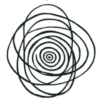Philosophy
Begin with the End in Mind
The true goal of education isn’t reached upon graduation or employment. We are striving to develop a certain quality of mind, a way of being in the world that’s both confident and compassionate, capable and curious. It’s about supporting individuals to develop their capacities to not only navigate the complexities of life as it is, but imagine better futures and contribute meaningfully to their communities.
Education, at its core, is a process of liberating onseself from ignorance, shedding the blinders that obscure our true potential. It’s about honing our skills, yes, but also about expanding our understanding of ourselves and our place in the grand web of reality. It’s a journey of exploration, both inward and outward, that touches every facet of our being – physical, intellectual, emotional, imaginative, and social.
We Are All Neurodiverse
We’re all built differently, each with our own unique mental, emotional, and physical configurations. Developmental psychology has enormous value in setting a foundation for education design, but each of us has unique gifts, individual challenges, and our own trajectories and paces of development. An educational program worth its salt recognizes and celebrates this diversity, crafting a learning environment that adapts to the individual, not the other way around. We all need challenge, and not liking something instantly is no reason to turn away, but all learners deserve agency and opportunities to express their understandings in a variety of ways at various times.
A Comprehensive and Cohesive Method
Effective education provides opportunities for students to explore the physical, intellectual, emotional, imaginative, and social dimensions of life, both independently and collaboratively. Recognizing that each person is a unique blend of body and mind, with varying aptitudes and intelligences, education helps identify and celebrate this diversity. In nature, there is only ecology, only interdependent differences, and human culture is an extension of nature. Learning programs (like all human endeavors) must make thoughtful trade-offs and compromises, but must always aim for coherence. Every aspect of an educational program, from the simplest brain break activity to the largest project, should conceptually and pedagogically communicate the understanding: “You are confident, capable, and caring.”
The Learning Community: A Kind Crucibal
We learn best not in isolation, but in community, and the creation of a shared culture of learning is the principle task of every edcuator. A classroom is an ecosystem, a living laboratory where ideas cross-pollinate, perspectives shift, and connections are forged. It’s a place where everyone is both student and teacher, where the hierarchy of knowledge melts away, and the spirit of collaboration reigns supreme. The underlying ethos is, “We’re all in this together.”
Education as a Sacred Act
Teaching and learning are acts of creation and a participation in the unfolding mystery of life. They are sacred rituals, fundamental thuman acts as essential to our survival as food, water, and shelter. When we teach, we pass on not just information, but a way of seeing the world, a way of being in relationship with ourselves, each other, and the planet. Education is the bedrock of culture, and should be infused with a sense of the mythic.
Digital Technology: Useful, Not Magical
Digital tools are just a subset of the category “Instructional Aids” and come with weaknesses, affordances, and emergent properties just like clay, Ticonderoga pencils, and counting blocks. That said, while the aim of education is the development of cognitive, emotional, and social skill, learning to use tools skillfully can have both intrinsic and extrinsic rewards. There’s a meaningul difference between giving a student a laptop and teaching them to type proficiently or providing access to the web vs. teaching how to search, just as owning a table saw does not make one a cabinetmaker. For any given goal, a live game, a printed handbook, or a custom chatbot could be the best solution. Digital technology is a powerful tool, but too often it’s used as a panacea or with assumptions about learner skill that inhibit real learning. It’s our responsibility to wield it wisely, in service of our highest values, not as a substitute for human connection or a distraction from the present moment.
The End is the Beginning
Education should inspire and be inspired. It should point individuals towards a lived experience of being a vital part of a vibrant world. By fostering a culture of learning, supporting creativity, and using technology wisely, education can develop individuals who are not only knowledgeable and skilled but also confident, capable, and caring. The end of any educational program should always be the start of something greater.

